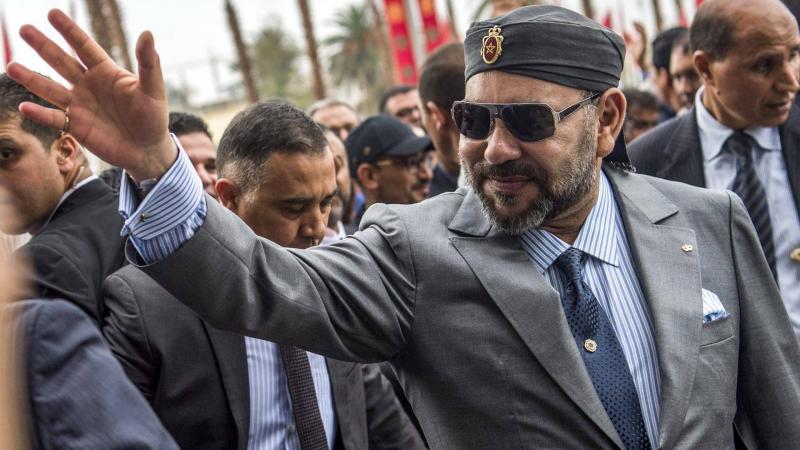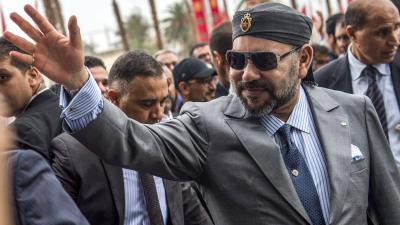Since his ascension to the throne, His Majesty King Mohammed VI has infused Moroccan diplomacy with renewed vigor and a continuous dynamic activity. This revitalization has extended to a new approach defined by His Majesty to achieve its clearly outlined objectives with precision and dynamism. In fact, King Mohammed VI introduced a new vision for Moroccan diplomacy and established an innovative methodology that draws upon the previous legacy of this diplomacy while simultaneously opening up broad horizons for diversifying and renewing its methods of operation.
Despite my experience serving as Minister of Foreign Affairs and Cooperation alongside His Majesty for over eight years, I do not claim in this testimony to cover all of His Majesty’s visions for diplomatic policy and its implementation on the ground. Rather, I aim to outline some of its elements and aspects of its execution.
His reign has crafted a new framework for Moroccan foreign policy, characterized by a principle of firm and realistic diplomacy. This reflects a steadfast commitment to defending Morocco’s interests, rights, and image, foremost among which is the territorial integrity of the nation, while adhering to a path of wisdom and realism in managing all diplomatic matters faced by Morocco.
The royal firmness in defending Morocco’s interests has clearly emerged in the speeches of His Majesty and in numerous communications sent to various international entities, transitioning this firmness into concrete stances on the ground. Observers interested in Moroccan affairs can note the outcomes of this firmness in the resolute positions taken by the King during periods of tension regarding Morocco’s relations with major countries concerning the Saharan issue, as witnessed with Germany, Spain, France, and previously with the United States.
The fruits of this approach are well-known, as His Majesty’s style of employing firmness and transparency has never compromised the principles of diplomacy or the highest standards of diplomatic dialogue.
Another important principle in King Mohammed VI's foreign policy vision can be described as the "policy of penetration." Thanks to this, Morocco has achieved unprecedented diplomatic expansion on the international stage, particularly by reshaping its presence in Africa. The King has initiated extensive efforts to deepen Morocco’s ties with two-thirds of African countries through numerous official visits, culminating in the signing of many bilateral cooperation agreements across various fields where Morocco possesses expertise and leadership, based on mutual benefit.
Within just a few years, Morocco regained its significant membership in the African Union after decades of voluntary absence from this African assembly. This move allowed Morocco to counter the maneuvers of adversaries to its territorial integrity within this African body and to actively contribute to guiding the organization’s efforts toward vital issues related to development, peace, and security.
As King Mohammed VI sought to enhance and strengthen Morocco's relations with European Union countries and diversify its partnerships, he shifted attention towards bolstering cooperation with the two poles of international politics, namely the People's Republic of China, which he visited in 2016, and the Russian Federation, which he also visited that same year. These visits culminated in significant, unprecedented agreements that established a promising strategic partnership in new areas of bilateral cooperation, alongside strengthened relations with key countries such as India and Japan.
This diversification approach was complemented by a noticeable opening towards key countries in Asia and an intelligent, remarkable shift towards Latin American countries, including Brazil. As a result of this new diplomatic era, Morocco has provided vast opportunities for political consultation, trade exchange, and extensive economic cooperation with these countries and others, thereby enhancing the scale and level of trust between Morocco and its international partners.
This Moroccan diplomatic expansion has led to a noticeable and consistent increase in foreign investments in Morocco, owing to the attractiveness that the Kingdom has garnered under King Mohammed VI. Thanks to his far-reaching vision, Morocco's economic and security presence in Africa has widened, gaining a distinguished and influential status, especially in West Africa and the Sahel region. The Kingdom’s position was further strengthened in regional and international institutions, such as the African Union and the UN Human Rights Council in Geneva, where Morocco obtained the presidency following intense competition with South Africa.
Under King Mohammed VI, the issue of the Moroccan Sahara, which is paramount for Moroccans, witnessed positive developments at the United Nations, with many countries in Africa, Asia, Europe, North America, and Latin America recognizing Morocco’s rights to its Sahara and supporting its proposal for granting these regions autonomy under Moroccan sovereignty. Notably, the American recognition of Morocco’s sovereignty over its Saharan territories and the clear support from Spain and Germany for Morocco’s autonomy plan illustrate this context.
A well-thought-out plan and strategic thinking have characterized Moroccan diplomacy during the reign of King Mohammed VI, directly overseen by him. The successes achieved resulted from meticulous planning and strategic foresight, acknowledging the transformations and complicated interactions of the international situation. Thanks to King Mohammed VI’s vision, Moroccan diplomacy has acquired significant space for action and movement, accumulating new experiences in effectively responding to various challenges and responsibilities, resulting in unprecedented strong decisions in Morocco's diplomatic history, supported by widespread public and political backing.
The Kingdom's ability to counter certain provocations and maneuvers from unfriendly or competitive parties, fearful of Morocco's influence regionally, continentally, and internationally, has become clear. This is exemplified by some counterproductive actions taken by certain EU member states, which later corrected their conduct and swiftly worked to restore their relationships and reaffirm traditional friendship with Morocco, a country committed to good neighborliness and faithful to its pledges and commitments.
Believing in its belonging to the Arab and Islamic family, Moroccan diplomacy has worked, in line with King Mohammed VI's vision and directives, to strengthen ties with sister Arab and Islamic countries, proactively expressing solidarity with them in all circumstances while supporting their territorial integrity and rejecting foreign interference in their internal affairs, and standing by every Arab nation facing external threats or provocations.
Additionally, it is worth noting the humanitarian aspect that has become a feature of Moroccan diplomatic efforts. Under King Mohammed VI’s guidance, who is keen on the virtues of humanitarian work, Morocco has offered assistance to Arab and African countries facing natural disasters or distressing events by providing significant medical, food, and logistical aid, and establishing field hospitals equipped with the latest medical supplies and equipment. Key examples of this humanitarian work include Morocco's significant assistance in Gaza, Lebanon, Tunisia, various African regions, and along the Syrian-Jordanian border.
In relation to Arab affairs, it is important to recall Morocco’s steadfast positions on the Palestinian issue. Under King Mohammed VI's reign, Moroccan diplomacy has remained committed to advocating for the Palestinian cause in all international forums, firmly supporting the Arab identity of Jerusalem and the establishment of a fully sovereign Palestinian state alongside Israel. Just as his late father, King Hassan II, diligently defended the Palestinian people’s right to freedom and independence and worked rigorously to safeguard the Arab identity of this holy city as the Chairman of the Al-Quds Committee, King Mohammed VI has tirelessly continued to provide and expand this support by establishing a dynamic civil entity dedicated to assisting Palestinians in their daily lives and addressing their urgent humanitarian needs.
The establishment of the "Bayt Mal Al-Quds Agency," operating from its headquarters in Rabat, undertakes significant humanitarian work almost daily in Jerusalem across areas like housing, health, education, restoring heritage buildings, and offering scholarships to Palestinian students, alongside organizing trips for Palestinian children to spend their holidays in Morocco, enjoying its hospitality.
Moreover, Morocco has opened new embassies and consulates worldwide, especially in Africa, Latin America, and Islamic Asian countries, to meet the demands of this diplomatic leap. In this context, King Mohammed VI has placed particular emphasis on diplomatic training, such as opening a dedicated section for diplomatic and international studies at Al Akhawayn University in Ifrane and establishing the Royal Academy of Diplomatic Studies, alongside sending educational delegations to various foreign institutes specializing in international studies in Europe, America, and Canada.
At the same time, the academic training prospects for African and Arab students in Morocco have expanded, along with an increase in university exchange with these countries, as well as with cultural and scientific forums organized by civil society institutions in the Kingdom. Not to mention the significant rise in the number of cultural, industrial, and agricultural exhibitions and international scientific conferences held in Morocco throughout the year in various scientific disciplines, including medical sciences, engineering, pharmaceuticals, environmental studies, renewable energy, financial governance, security policies, military issues, and strategic affairs.
Morocco's participation in various international fairs and conferences has increased dramatically and notably, owing to the qualitative developmental leap achieved during King Mohammed VI’s reign in all areas and levels.
It is essential to highlight an important aspect of global human rights standards: all manifestations of this Moroccan advancement under King Mohammed VI have coincided and intertwined with significant expansions in the practice of freedom of opinion, thought, and expression, political and trade union activity, and civil engagement. Additionally, we must draw attention to the remarkable flourishing of the sports sector, particularly football, positioning Morocco as a leading nation in Africa and the Arab world.
All these factors and more have assisted Moroccan diplomacy in promoting a vibrant and genuine image of a Morocco that confidently and resolutely strides into the future, a Morocco blessed with a King who has uplifted his country and its peoples without leaving any domain untouched by seeds of renewal, modernization, and development.




